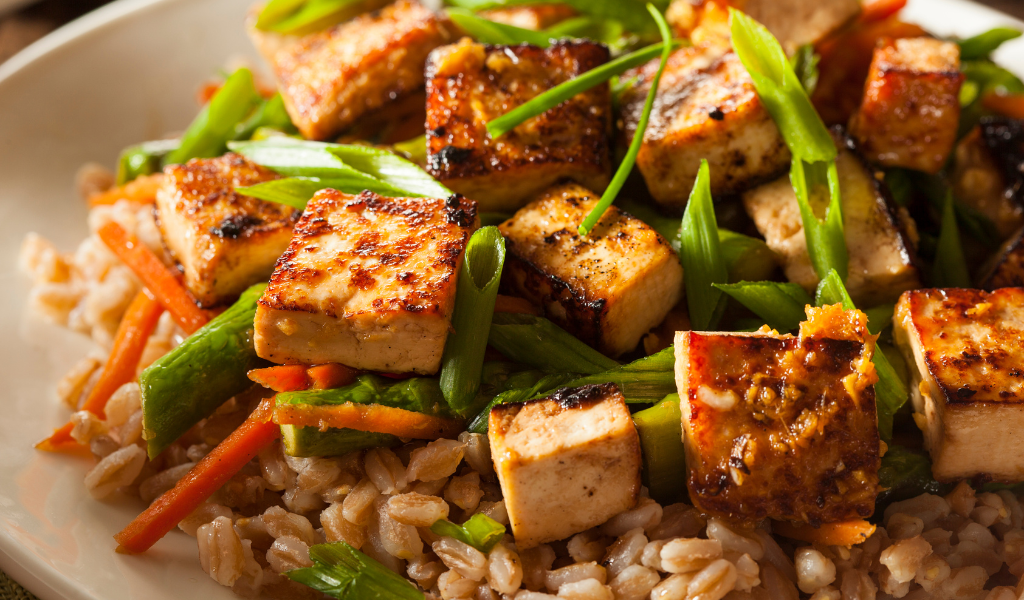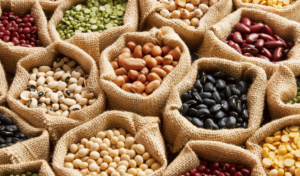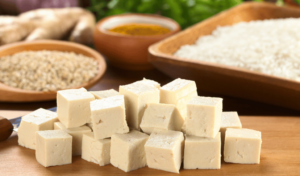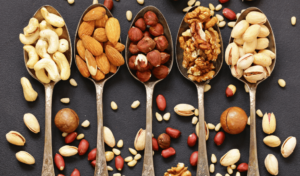Health
Fuel Up without Meat: Plant-Based Protein Sources for Vegetarians

For vegetarians, ensuring adequate protein intake has long been a concern. But worry no more! There’s an abundance of delicious and satisfying plant-based protein sources for vegetarians for healthy nourishment. Let’s break down some of the best options and how to incorporate them into your daily diet:
The Protein Superstars
- Lentils and Beans: These nutritional champions are not just protein giants (averaging 7-9 grams per cooked cup), but also boast an impressive fiber content (5-7 grams per cup). This fiber keeps you feeling full for longer, aids digestion, and helps manage blood sugar levels. Additionally, lentils and beans are excellent sources of iron, folate, potassium, and magnesium, contributing to energy production, healthy brain function, and strong bones.
Pro Tip: Try incorporating lentils and beans into your daily routine by adding them to salads, soups, stews, curries, and even veggie burgers!

- Tofu and Tempeh: Derived from soybeans, both tofu and tempeh provide a complete protein profile, meaning they contain all nine essential amino acids your body needs. Tofu, with its smooth texture and neutral flavor, is incredibly versatile, making it a perfect canvas for absorbing marinades and spices. Meanwhile, tempeh’s slightly nutty flavor and crumbly texture make it ideal for stir-fries, sandwiches, and crumbles. Both are also good sources of calcium, iron, and healthy fats.
Pro Tip: Explore the diverse world of tofu! Try firm tofu for grilling and scrambling, silken tofu for creamy sauces and smoothies, and sprouted tofu for added nutrients.

- Quinoa: This ancient grain stands out as a complete protein, offering all essential amino acids in a single serving (8 grams per cup cooked). Quinoa is also gluten-free, making it a suitable option for individuals with celiac disease or gluten sensitivity. Furthermore, it’s rich in complex carbohydrates for sustained energy, contains essential minerals like magnesium and phosphorus, and provides a good dose of fiber (2 grams per cup cooked).
Pro Tip: Explore different ways to enjoy quinoa! Cook it like rice for a fluffy base to your meals, or add it to salads, soups, and veggie bowls for extra protein and texture.
Protein-Packed Snacks and Additions
- Nuts and Seeds:These miniature powerhouses pack a significant protein punch (around 5-7 grams per ounce) along with healthy fats, fiber, and various vitamins and minerals. Almonds, cashews, walnuts, pumpkin seeds, and chia seeds are all excellent choices. Snack on them raw, toast them for enhanced flavor, or use them as toppings for salads, yogurt, and oatmeal.
Pro Tip: Opt for unsalted and raw nuts and seeds whenever possible to control sodium intake and maximize nutrient value.

- Green Peas: These little green gems are often overlooked, but they offer a surprising amount of protein (around 8 grams per cooked cup) and are also a good source of fiber (4 grams per cup cooked). Plus, they are loaded with vitamins A, C, and K, contributing to healthy vision, immunity, and blood clotting.
Pro Tip: Don’t just reserve green peas for curries! Blend them into pestos, add them to stir-fries, or enjoy them roasted as a healthy snack.
Get the Expert Insights
To optimize your vegetarian diet and ensure you’re getting all the essential nutrients, consider following these excellent Indian nutritionist influencers:
Munmun Ganeriwal (@munmun.ganeriwal)
View this post on Instagram
Munmun focuses on plant-based nutrition and gut health, providing delicious and science-backed recipes and insights.
Pooja Makhija (@poojamakhija)
View this post on Instagram
A renowned nutritionist with decades of experience, Pooja frequently shares informative and accessible content on vegetarian nutrition on her social media platforms.
Remember, variety is key! Explore different protein-rich plant-based foods to find your favorites. Don’t hesitate to experiment with incorporating these protein powerhouses into existing recipes or creating entirely new dishes that highlight their unique flavors and textures.
Important note: While these suggestions can guide you towards a healthy and fulfilling vegetarian diet, it’s always a good idea to consult a registered dietitian to optimize your protein intake based on your individual needs and fitness goals.






























